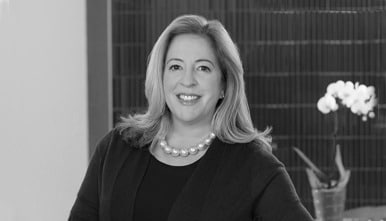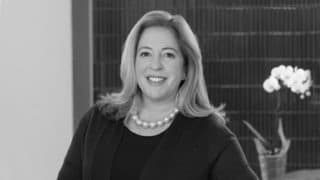Can You Invest for Profit and Purpose?
- October 22, 2020
- Blog Posts
- Share Via

Can You Invest for Profit and Purpose?
A wealth management CEO explains how
Can I invest my money in a way that does more than generate returns?
Many of our clients actively seek to make a difference in the causes they believe in through volunteering and charitable donations. In recent months, a growing number of O’Brien clients have asked how they can use their assets to effect change through investing. Some want to help reverse climate change. Others are concerned about protecting data privacy and increasing corporate transparency. Given recent events, many want to promote inclusion, diversity and fair employee treatment. We tell them about ESG investing—ESG lets you direct your investments to champion the causes you care most about. Importantly, this kind of investing can also be profitable.
Exactly what is ESG Investing?
Also called sustainable investing, ESG stands for environmental, social and governance. The concept is simple: you align your capital with your values, putting your money to work creating change you want to see. You can invest in companies operating in ways that help reduce waste, promote women or improve labor conditions, for example. Companies with strong parental leave policies, a flexible work environment or unconscious bias training. The point is that you’re asking your investments to do more than provide returns; you’re investing with purpose.
And, it’s not just about investing in companies doing good things now. The fund managers we invest with advocate to promote positive actions. For example, Lowe’s was utilizing a pesticide that was contributing to the decimation of bee populations. Lowe’s investors organized a shareholder advocacy group. As a result, Lowe’s not only took that chemical off its shelves but out of its supply chain. Next thing, Home Depot had to follow suit or risk serious reputational consequences.
A new, inclusionary ESG
ESG has evolved from its early days. Originally called socially responsible investing, it started in the 1960’s. Initially, the practice meant banning certain industries or companies from client portfolios. No tobacco or gun stocks, for example, or no bonds issued by chemical companies or alcohol producers. The focus was negative and narrow, all about excluding investments based on a company’s core business. This ESG approach did do some good, pushing many firms to divest from apartheid South Africa, for example.
Today, ESG investing is more about what you own, not what you ban. Instead of eliminating whole industries or sectors, we focus on investing in companies that have embraced ESG principles. Practices like limiting their negative impact on the environment, having diverse management teams and independent boards of directors, engaging positively with all stakeholders: employees, suppliers, customers, communities. In other words, companies who incorporate aspects of sustainability into the way they do business.
No need to sacrifice returns for impact
Current research shows that it is absolutely possible to invest with purpose and do well financially. According to CNBC, U.S. mutual funds and exchange-traded funds with a sustainable focus gained $21.4 billion in new money in 2019. That’s almost four times the amount in 2018, which held the previous record. 2020 is on track to exceed that record. According to the neutral fund tracker, EPFR, funds with ESG mandates brought in more than $61 billion from January to June of this year.
And these ESG investments are performing well. For the 12 months ended April 30, 2020, the major global ESG indices— MSCI KLD 400 Social Index, the MSCI World ESG Leaders Index, and the Refinitiv Eurozone ESG Select Index—were all up 200 to 320 basis points relative to non-ESG benchmarks.
Studies also demonstrate that ESG portfolios can be more resilient in volatile markets. During the great financial crisis of 2008-2009, firms with strong ESG principles experienced fewer bankruptcies and forced mergers than their traditional counterparts. More recently, a Morningstar analysis of 2018’s most volatile stock market weeks (when the S&P fell over 7%) found that two-thirds of all U.S. sustainable funds finished in the top half of their respective categories over that same period.
It seems that companies with good governance, resilient supply chains and environmentally sustainable business practices do well in economic downturns. As we tell our clients: the bottom line is that you can do good and still do well.
Current events and societal trends are spotlighting ESG
As the numbers on ESG asset growth demonstrate, investor interest in ESG investing is exploding. So, what’s driving it? Surely a big piece is the state of our nation. The pandemic, racial tensions, our intense political divide, all these things are pushing the “S” in ESG to the front of people’s minds.
These national conversations are also shining a bright light on corporate America. We’re seeing how firms are or are not prioritizing the wellbeing of their employees, customers and communities. The COVID crisis is highlighting these distinctions. Does the company have initiatives, policies and philosophies like equal pay for equal work and promotion guidelines for women, people of color and other underrepresented populations? Is management demonstrating commitment to these things or just paying lip service?
These social currents are influencing the investment landscape. Investors are prioritizing diversity in new ways. Many want to give back to their communities—which have been especially hard hit by the pandemic, along with historic racial inequality. ESG investing can provide opportunities to do that.
Is ESG for me?
ESG is a great way to do the most with the money you’ve worked so hard to save. You can help yourself and the causes you believe in. There are ESG opportunities across the investment spectrum of stocks, bonds and other financial instruments. As evolving expectations push companies in all industries to behave more responsibly, their financial value is improving—providing investors with even more ESG choice.
As fiduciaries, we are obliged to promote our clients’ best interests. The growing awareness that ESG issues are financially material means that we must consider these factors alongside conventional accounting-based elements when building their portfolios. But we also believe in ESG. We are trying to run O’Brien sustainably, and continue to seek out opportunities to make a positive difference in our world.
It’s an exciting time to invest. Many ESG issues like the environment and better corporate representation for women and people of color require us to take a long-term view. But change is happening, and investors are participating. And if our experience at O’Brien is any indication, these trends will continue to grow.
By Jill Fopiano
President & CEO
Published on October 21, 2020
Disclosures:
-
Registration with the SEC should not be construed as an endorsement or an indicator of investment skill, acumen or experience.
-
Investments in securities are not insured, protected or guaranteed and may result in loss of income and/or principal. Diversification does not eliminate the risk of market loss and, long-term investment approach cannot guarantee a profit.
-
This communication may include opinions and forward-looking statements. All statements other than statements of historical fact are opinions and/or forward-looking statements (including words such as “believe,” “estimate,” “anticipate,” “may,” “will,” “should,” and “expect”). Although we believe that the beliefs and expectations reflected in such forward-looking statements are reasonable, we can give no assurance that such beliefs and expectations will prove to be correct. Various factors could cause actual results or performance to differ materially from those discussed in such forward-looking statements. All expressions of opinion are subject to change. You are cautioned not to place undue reliance on these forward-looking statements. Any dated information is published as of its date only. Dated and forward-looking statements speak only as of the date on which they are made.
-
Investment process, strategies, philosophies, portfolio composition and allocations, security selection criteria and other parameters are current as of the date indicated and are subject to change without prior notice.
-
In general, investment in foreign issuer securities entails additional risks such as limited transparency and accounting overview, varying frequency, availability and quality of financial information, limited enforcement opportunities by US regulators, and limited shareholder rights and/or remedies.
